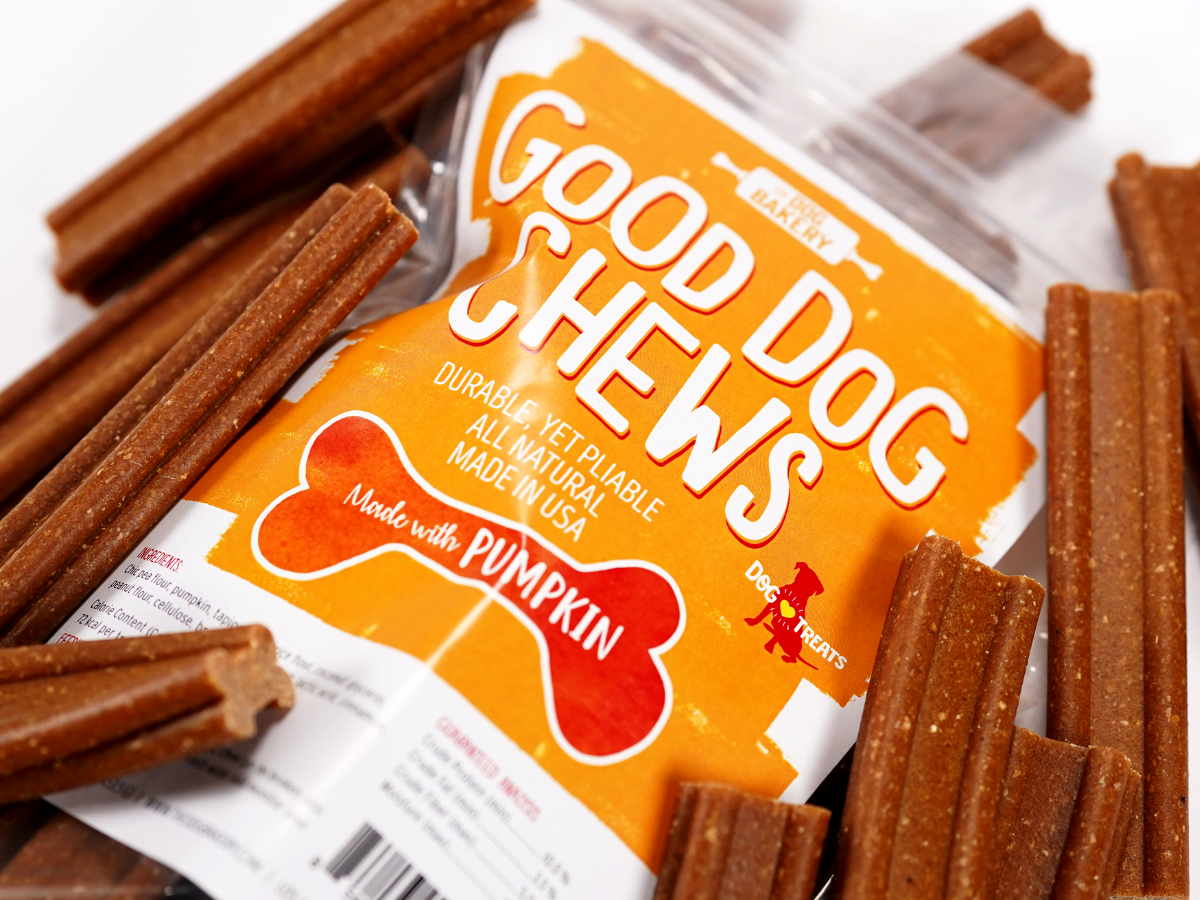Why Is My Dog’s Nose Runny? Learn 7 Reasons
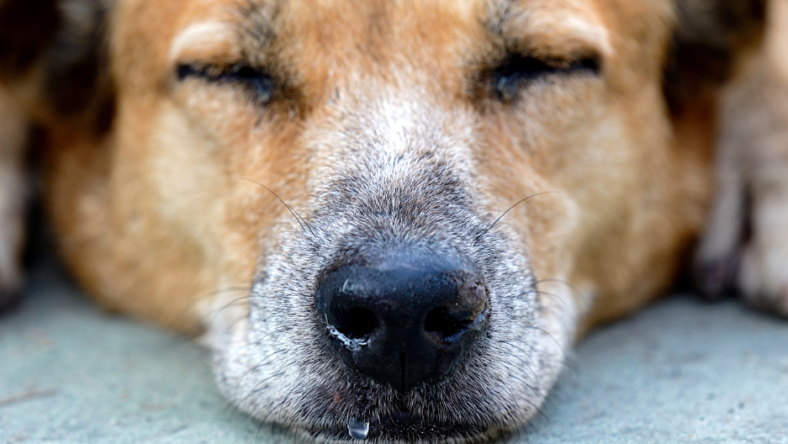
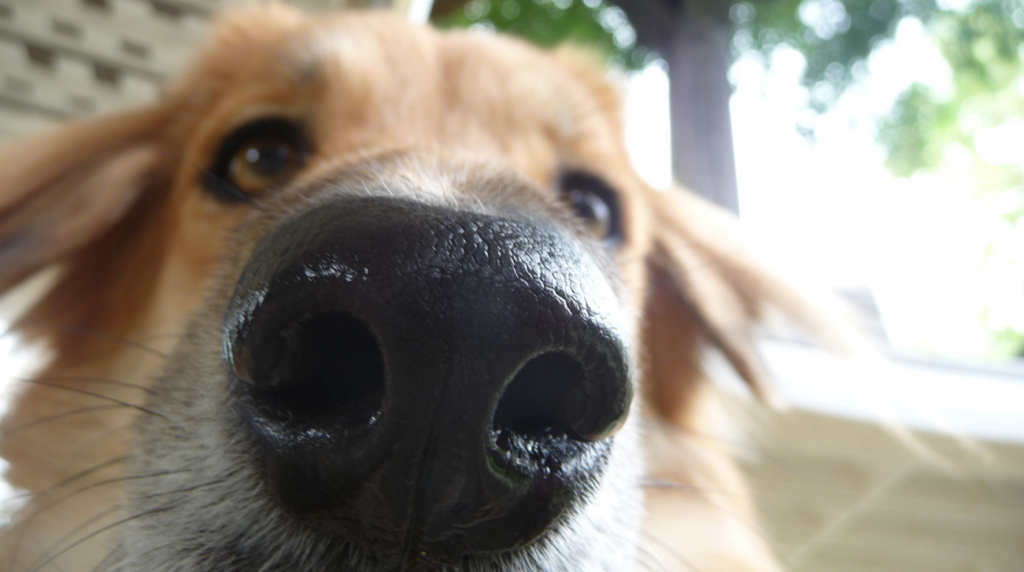
Nobody likes having a runny nose, and that includes your dog! Just like people, dogs can get runny noses for several different reasons.
First, make sure that your dog’s nose is actually runny. A dog’s nose is naturally supposed to be cold and wet. Unlike people, a dog’s nose has rhinarium, also known as the “nose leather,” covering it.
If you could imagine yourself saying “my dog’s nose is so wet it drips” you’re definitely dealing with a runny nose.
This structure is actually a separate sense organ that helps trap scent particles and improves the dog’s sense of smell. In a healthy dog, it is damp, but not soaking wet.
If your dog’s nose has liquid trails or seems extra wet around the nostrils, that could be a sign of a runny nose!
What Does A Runny Nose Mean?
Runny noses are symptoms of other problems. There are a lot of different causes of runny noses in dogs. Some of them are easily treatable at home, but others require a veterinarian’s attention.
There is no one answer to the question “what does it mean when a dog’s nose drips?” Here are some of the most common reasons a dog’s nose will run.
1. Temperature Regulation
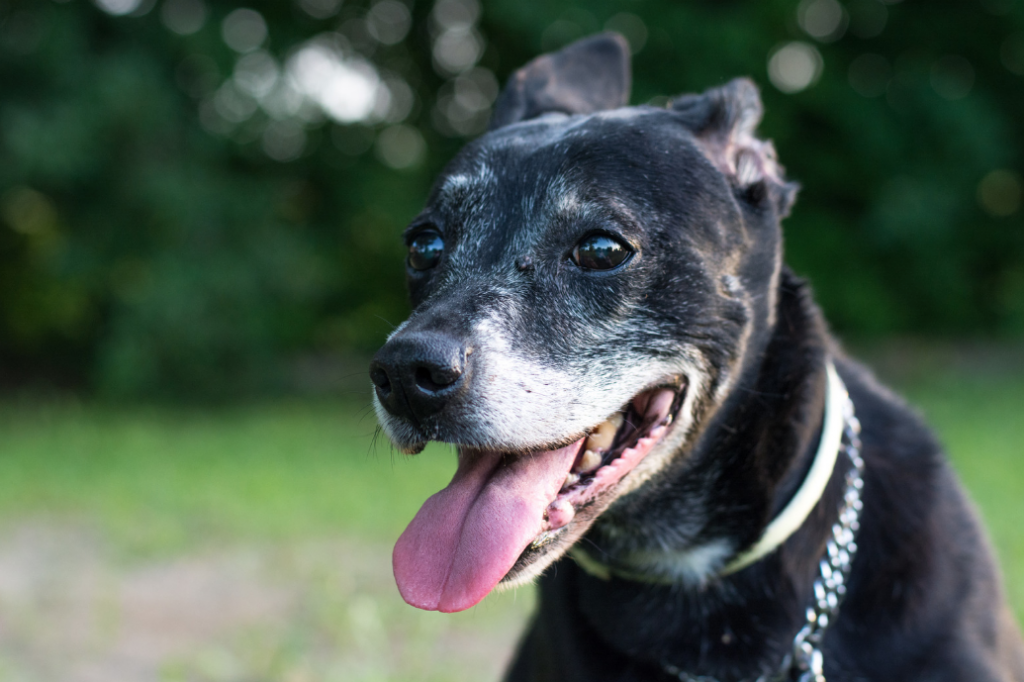
Dogs don’t sweat as people do, but that doesn’t mean they have no sweat glands. Dogs have sweat glands in two areas: their paws and their nose.
On excessively hot days, your dog will sweat from both of these places. It’s an important mechanism to keep them cool. If your dog’s nose is running because she’s too hot, the discharge will be thin and clear, just like any other sweat!
Treatment
This is the easiest runny nose condition to treat. All you need to do is help your dog cool off! Bring them inside, or move them to a cooler room. Offer cool water to drink – there are lots of ways to help a dog cool off. Once they’re at a more comfortable temperature, their nose will stop running.
2. Seasonal and Food Allergies
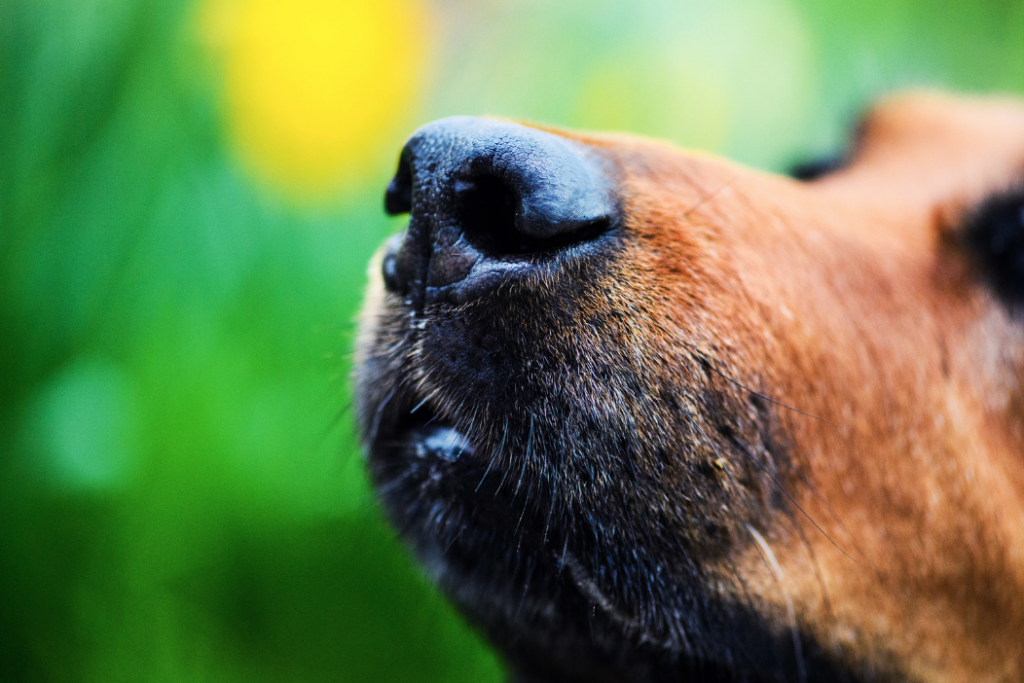
One of the most common reasons that a dog’s nose might be runny is seasonal allergies. If you notice that your dog has clear fluid running from its nose in the spring or summer, it’s very likely to be an allergy.
See also Why Is My Dog Peeing In Their Sleep?
In addition to seasonal allergies, runny noses in dogs can also be the result of food allergies. Many dogs have issues with grain or other ingredients.
These dogs will often have more obvious digestive issues on top of the other symptoms. A dog that has an upset tummy, itchy skin, and a runny nose likely has a food allergy.
Treatment
For severe allergies, dogs can take medicine prescribed by their veterinarian. You can also do some things at home to make your dog more comfortable. Washing their paws and wiping their faces and bodies down after coming inside can help, as can keeping them inside on high pollen days.
If the problem is due to a food allergy, the easiest thing to do is switch foods. Your veterinarian may put your dog on an elimination diet to figure out which ingredients are particularly problematic.
3. Foreign Body
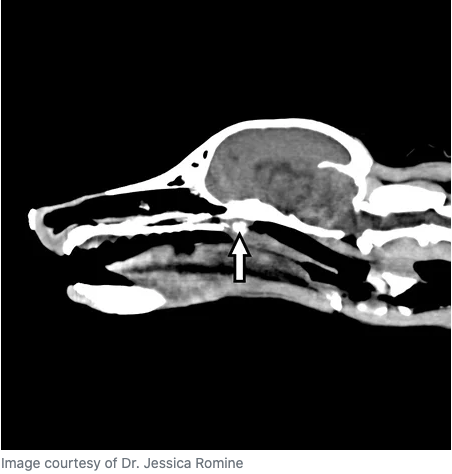
Source: dvm360
Dogs are always sniffing, and sometimes that sniffing can lead to a small object getting stuck in the nose.
The first symptom you’ll see is clear fluid running from the nose. Sometimes swelling of the nose or snout may accompany this. You might see your dog pawing at their snout or expressing discomfort when it’s touched.
A foreign body is a serious problem because it can lead to an infection, so if you notice these symptoms, contact your vet immediately.
Treatment
If the foreign body is just in your dog’s nostril, you can carefully remove it. But if it’s any further back, you need to have your vet remove it.
A dog’s nasal passages are really sensitive, and you don’t want to risk any further damage. Foreign body removal is typically a sedated procedure, and the sooner you get it taken care of, the easier the procedure will be on your dog.
See also 10 Best CBD Dog Treats on the Market
4.Kennel Cough
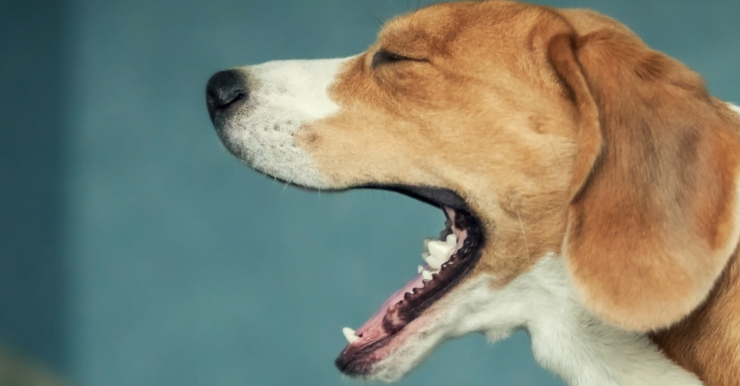
There are several types of infection that can cause runny noses in dogs. When infection is due to a common, easily transmissible disease, it’s called “kennel cough.” You might also see it referred to as the canine infectious respiratory disease complex (CIRDC).
Kennel cough has lots of viral and bacterial causes. The first symptoms are coughing, sneezing, and a runny nose that occurs after your dog has been around other dogs. The nasal discharge may be clear and runny at first, but as the disease progresses, the nasal discharge might become cloudy or even a thicker, green mucus.
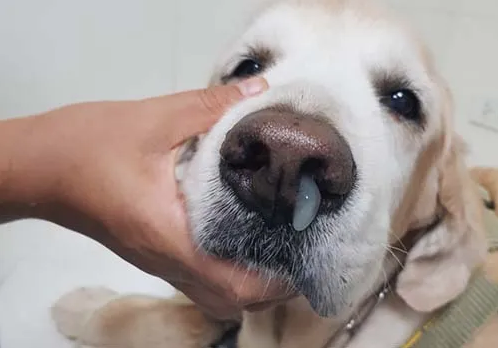
Treatment
If you catch kennel cough early, treatment is usually fairly easy on your dog. If the infection is bacterial, your vet may prescribe antibiotics. It’s very important that you keep your pet separate from other animals during kennel cough treatment since it’s so contagious.
5. Fungal Infections
There are several types of fungus that can cause respiratory infections in animals. One of these is Aspergillus, which is an extremely common cause of sinus infections in dogs.
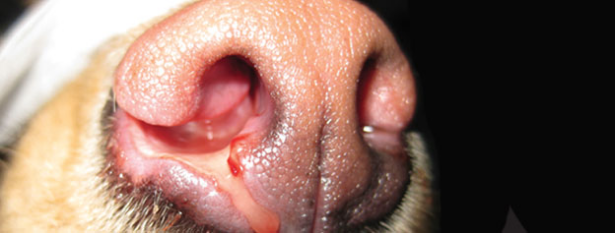
The nasal discharge from this type of infection is usually thick and can be green or yellow in color. It is often accompanied by nosebleeds, a painful nose, sneezing, and sores on your dog’s nostrils.
Treatment
Your vet will diagnose nasal aspergillosis infections with an endoscope or lab tests. Treatment usually involves medication in the form of a nasal spray or an oral preparation. Fungal infections in the nose can lead to more serious infections, so treat this as soon as possible.
See also 6 Vegan Dog-Food Recipes for Dogs with Meat Allergies
6. Nasal Mites
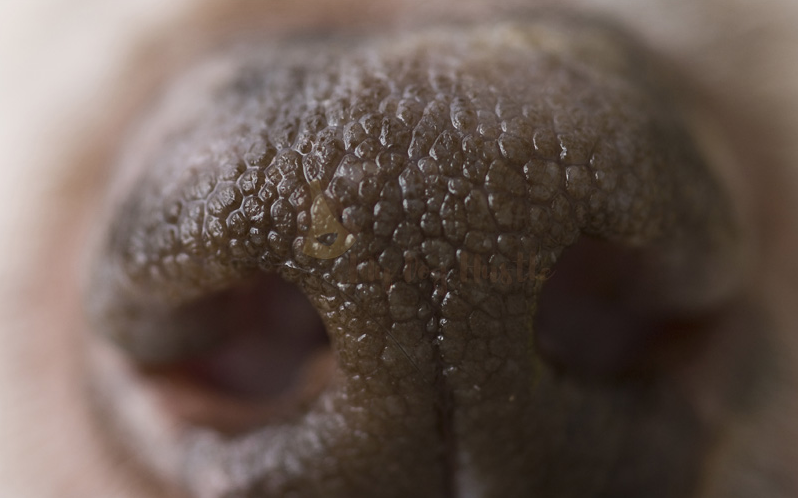
Canine nasal mites are a source of irritation to many dogs. These annoying little parasites take up residence in a dog’s nasal cavity. In addition to a runny nose, you’ll often see dogs with nasal mites shaking their heads, sneezing frequently, and pawing at their snouts.
Treatment
Nasal mites are difficult to diagnose without an endoscope or fluid draw, but once your vet has diagnosed the mites, they’re pretty easy to treat. Your vet will prescribe an antiparasitic medication and that will be that!
7. Nasal Cancer
Nasal cancer is rare in dogs, accounting for only about 1% of all cancer. But it’s still a possibility, and runny noses are a symptom of nasal tumors. These are usually accompanied by nosebleeds, neurological problems, and facial deformities as the tumors grow. If your dog has cancer, it will have more symptoms than just a runny nose. If your dog has a runny nose, it’s very unlikely that it’s cancer– but it’s still a possibility.
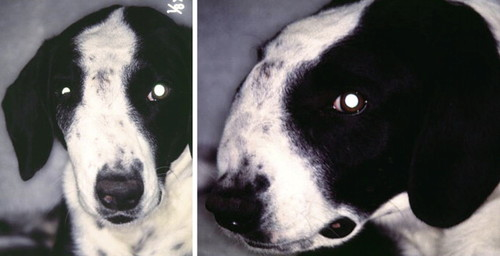
If your vet thinks that your dog may have nasal cancer, they will order imaging and tests before making any diagnosis. They won’t want to jump to conclusions!
Treatment
If your dog does have nasal cancer, there are a few treatments like radiation therapy, surgery, chemotherapy, and other types of therapies that can potentially shrink the tumor.
8. Nasal Polyps
Nasal polyps are noncancerous growths that line the sinuses. Typically the result of infection or allergies, nasal polyps can cause congestion, runny nose, loud breathing, and sneezing in dogs.
You’ll need a veterinarian to diagnose your dog with nasal polyps since you can’t see them from the outside of their nose or in their nostrils. Here are a few pictures of nasal polyps in dogs from a study published in 2018.
Treatment
Nasal polyps are fairly uncommon and require surgical removal. In some cases, nasal polyps may be too difficult to remove surgically, and your vet may have other recommendations.
While nasal polyps are noncancerous, they can lead to cancerous growth and may be treated with cancer-fighting drugs.
My Dog Has a Snotty Nose—What Can I Do?
If your dog has a chronically runny nose, you’ll need to consult with a vet to determine the underlying problem. They’ll be able to give you specific recommendations for treating your dog’s snotty nose.
In the meantime, you can gently wipe your dog’s nose with a tissue or damp cloth to remove snot. Do your best to keep your home clean and free from dust, and consider switching your dog to a novel protein diet in case their food is causing inflammation.
When Should I Worry?
A dog having a runny nose is never totally normal, but it’s not always a sign that things are really wrong.
In general, you should call your vet whenever you see any fluid that isn’t clear or a runny nose that’s accompanied by other symptoms. And if the nasal discharge is cloudy, stinky, yellow, or green you should always call your vet. They can help you figure out what the next steps are to help your dog be happy, healthy, and free of pain or irritation!
Frequently Asked Questions
Need to know more about how to handle a dog with a runny nose? Here are some of the most common questions from dog owners like you.
Unless specifically prescribed or recommended by your vet, it’s not a good idea to give your dog medication for their runny nose.
If you know that your dog is suffering from allergies and not some underlying physical illness, over-the-counter allergy medications like Zyrtec may be recommended by your vet.
Some dogs may also benefit from warm compresses and gentle nasal passage cleanings. Do your best to keep your come free from environmental irritants like scented candles, air fresheners, perfumes, incense, or smoke.
Like humans, dogs can get runny noses for lots of reasons. Some of the most common include allergies, environmental irritants, and kennel cough. These can easily be treated by eliminating irritants, giving your dog prescription antibiotics, and treating your pooch for allergies.
In rarer, more serious cases, a drippy nose can be a symptom of nasal polyps, nasal cancer, fungal infections, and so on. All of these issues will need to be addressed by your vet. If you notice your dog has a runny nose for more than a few days, set up an appointment for them with your veterinarian.


